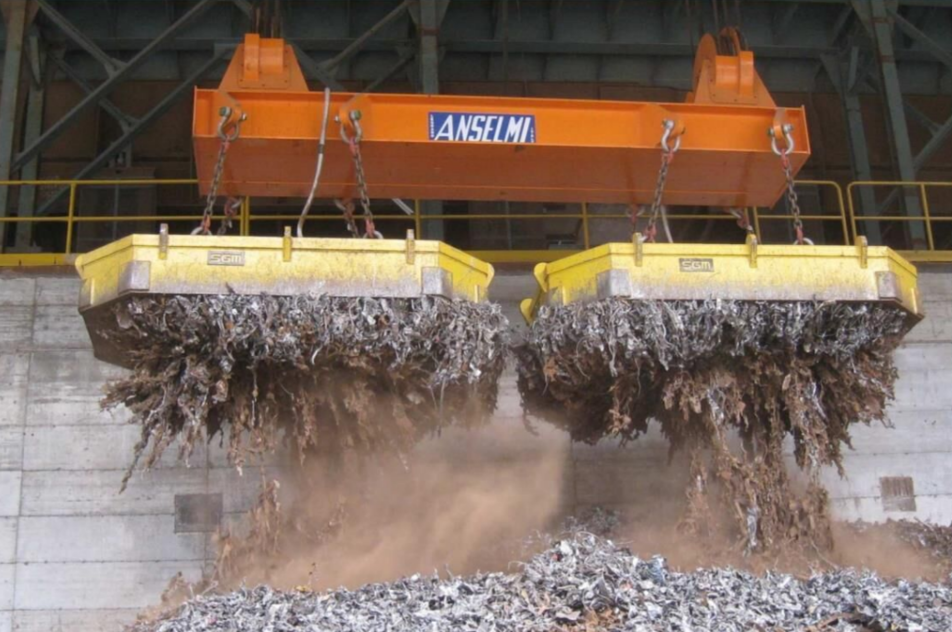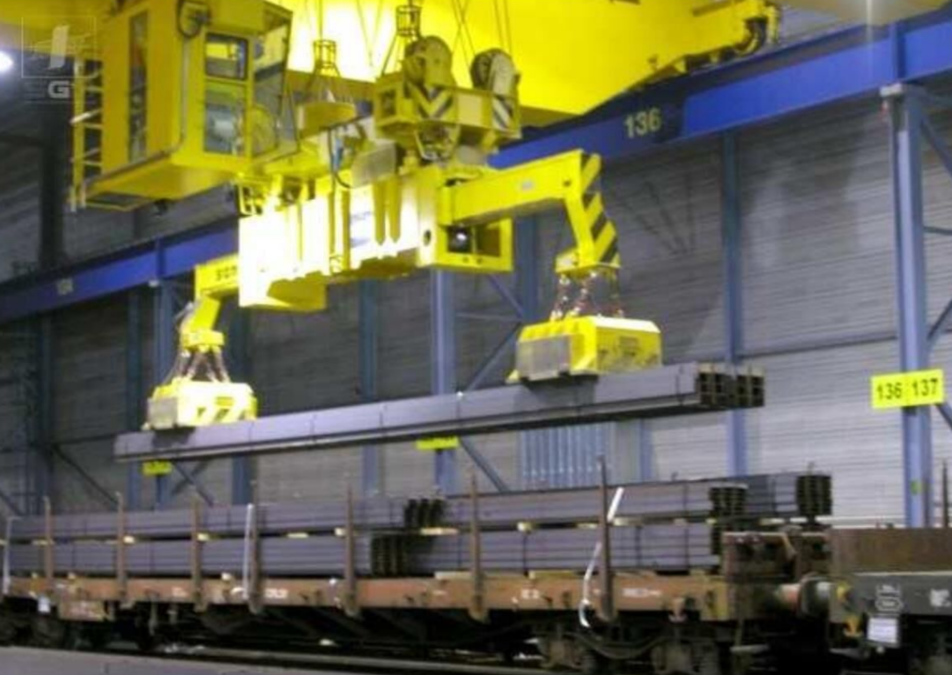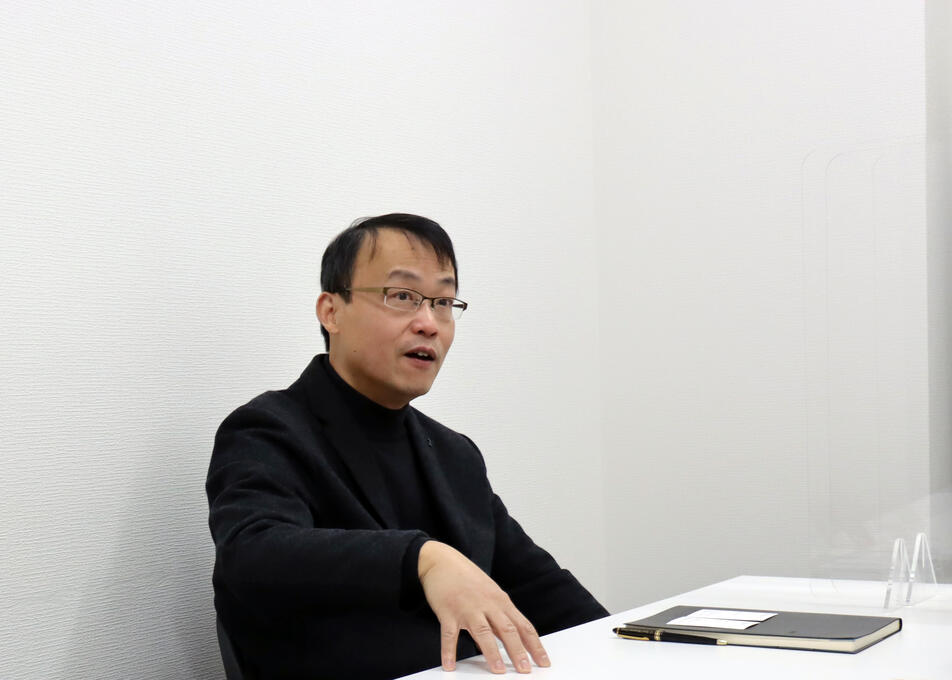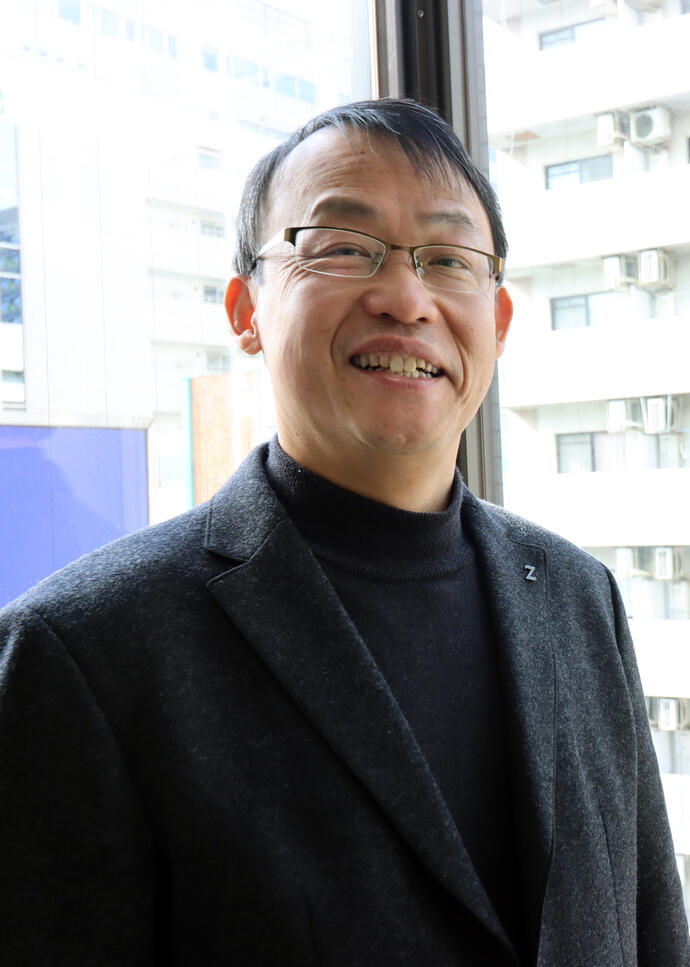Nagoya: Convenient Transportation and an Attractive Location for Manufacturing Industries
Jun Uchida
Representatives in Japan, SGM Magnetics S.p.A.
- TOP
- INTERVIEWS
- Nagoya: Convenient Transportation and an Attractive Location for Manufacturing Industries
Growing demand for recycling and the strength of our products
Q: Please tell us about your company's business.
There are two pillars of our business. The first is called magnet lifting, which deals with magnets used mainly in the steel industry to lift steel. We use massive magnets used in unloading at ports, warehouses, and automobile manufacturing, to lift large pieces of steel. Second, we recycle resources. At SGM's facilities, we sort out ferrous and nonferrous material of industrial waste (miscellaneous scrap) and separate it into recyclable and non-recyclable portions. This results in less waste sent to landfills.
Q: Can you tell us a little more about the recycling process?
Japan originally exported industrial waste (miscellaneous scrap) to China. However, due to environmental regulations in China and revisions to the Basel Law, it became necessary to process 5 million tons of industrial waste (miscellaneous scrap) annually in Japan. So it was evident that the need for resource recycling in Japan would increase.
With SGM's technology and facilities, it is possible to finely sort out reusable and non-reusable resources and raise the quality of reusable resources. This recycling technology is our strength.
Creating a Japanese branch enables us to respond more quickly and include maintenance support
Q: Was the growing demand for recycling a significant factor behind your expansion into Japan?
We had been considering expanding into Japan for two or three years. Of course, the growing demand for recycling is one of the reasons.
In addition, we were confident that we could compete in the Japanese market with our other mainstay business, magnetic lifting. We had always had a track record of doing business with Japanese customers, but the bottleneck was the two to three months to import parts from Italy. We thought that by establishing a Japanese branch, we could respond to this problem more quickly and include maintenance support.
Q: Of all the locations in Japan, why did you choose to locate in Nagoya?
First of all, transportation is convenient. We can go both to the east and west. Nagoya Port is also a convenient port for unloading.
In addition, Nagoya's is in the center of Japan's manufacturing industry, it is easy to procure parts for maintenance, and there are many engineers, which all attracted my attention. In the future, it will also be easy to recruit engineers when the company grows.
The Italian headquarters did not know Nagoya, but we persuaded them by introducing Nagoya as a city that could cover both Tokyo and Osaka.
Initially, we visited Nagoya City Hall on a walk-in basis
Q: Did you have ties to Nagoya?
I worked for a steel trading company in Nagoya from 1995 to 2006. After that, I continued working in China in the steel industry. So I know Nagoya very well. Aside from business, Nagoya is affordable and has an image as a great place to live. The city is quiet at night, but on the other hand, craftspeople work diligently during the daytime.
Q: What kind of support did you receive from the City of Nagoya and other organizations when entering the Japanese market?
The subsidies for opening an office from the Greater Nagoya Initiative Council and rent support using the City of Nagoya's Subsidy for the Promotion of Advancing into the City of Nagoya for Foreign Companies were very beneficial. Initially, we visited Nagoya City Hall on a walk-in basis and the person in charge gave me detailed information about Nagoya City's support for business startups.
*Greater Nagoya Initiative Council (GNIC)/Greater Nagoya Initiative Council (GNIC) is an organization that provides one-stop support for overseas companies wishing to enter or expand their business in Greater Nagoya (an economic zone stretching 100 km in a radius around Nagoya) to ensure smooth business development in the region. The organization provides startup support for foreign companies and other companies expanding into Aichi, Gifu, and Mie prefectures and Nagoya City.
Using Nagoya as a base to approach clients in both the east and west of Japan
Q: Mr. Uchida, you also participated in the Foreign Affiliated Companies Network Roundtable organized by the City of Nagoya. What was the atmosphere like?
I had the opportunity to speak at the networking roundtables. Although it has not yet led to direct business, it was meaningful for making connections with foreign companies doing business in Nagoya.
*The Foreign Affiliated Companies Network Roundtable was held by INVEST IN AICHI-NAGOYA CONSORTIUM, established by Aichi Prefecture, in Nagoya City and surrounding areas to create a network between foreign-affiliated companies and companies in the prefecture, aiming to assist with entering and establishing themselves here.
Q: Finally, what is your vision for the future?
Currently, we are a Japanese branch office. I hope to approach clients in both the east and west of Japan, using Nagoya, the center of Japan, as a hub to improve our sales performance and establish a Japanese corporation.




